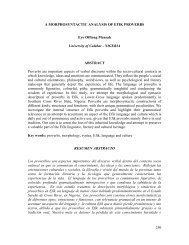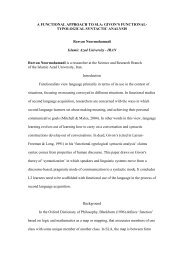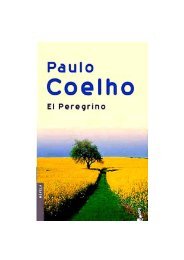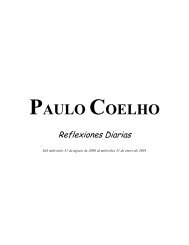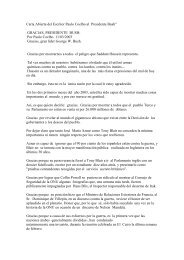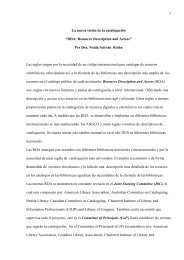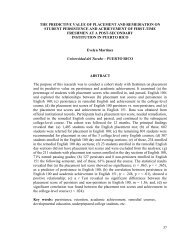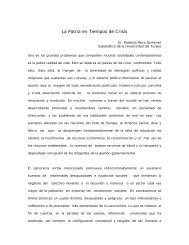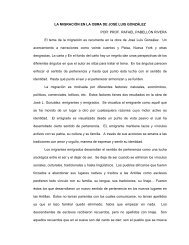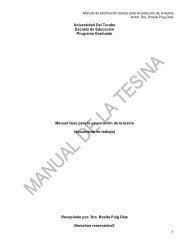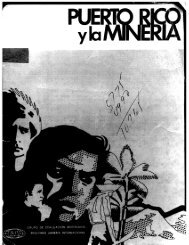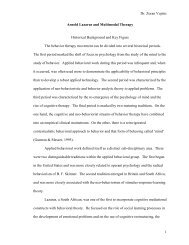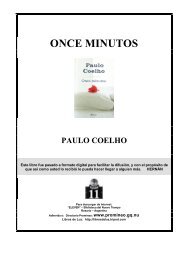Jennet Rodriguez Betancourt
Jennet Rodriguez Betancourt
Jennet Rodriguez Betancourt
Create successful ePaper yourself
Turn your PDF publications into a flip-book with our unique Google optimized e-Paper software.
mountains of the island as their shield. He expresses that “The Puerto Rican-as-jíbaro<br />
trope was initially tied to the politics of historically young, ascendant elites; as such, it<br />
formed part of the arsenal that this group used to advance a particular socioeconomic and<br />
political-that is, class-project” (1403). According to this author, in time the masquerades<br />
intention became popularly recognized and the jíbaro symbol assumed a significant role<br />
In his work, Scarano traces the jíbaro masquerade of the early 19 th century<br />
signaling three instances in which Creoles wore jíbaro masks with the obvious intent of<br />
disguising a political message or simply voicing disapproval. In 1814 a letter, from an<br />
anonymous writer signing with the pseudonym of the patient jíbaro denounced an abuse<br />
by local tax authorities in the Diario, a Puerto Rican newspaper. Later in 1820, El<br />
Investigador published an anonymous poem, Coplas del Jíbaro which satirized reactions<br />
of both island and peninsular conservatives against Spain’s liberals. Another instance in<br />
which the jíbaro was used was in 1822, the Diario liberal y de vriedades de Puerto Rico<br />
printed poems by anonymous correspondents who exchanged verses between two peasant<br />
families, in a peasant culture, using peasant expressions.<br />
Although Alonso was not the first to use the jíbaro as trope in the 19 th century, he<br />
was one of the most exceptional authors to express and describe the peasant language and<br />
the rural and urban traditions of the jíbaro. Describing Alonso, Auffant Vázquez says<br />
that his work is “…el más representativo por que une el lenguaje al proceso de<br />
pensamiento de su momento” (xiv), and that it “…expresa la sincera revelación del alma<br />
nuestra, en el tardío y lento amanecer de las letras boricuas, cuyo mediodía aun no se<br />
logra plenamente. La política, la educación y el progreso sostienen el aliento de su<br />
criollísimo festivo y sano humorístico” (Auffant Vázquez 14). Alonso is also considered<br />
7



